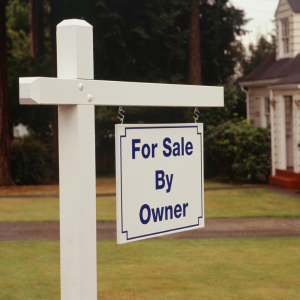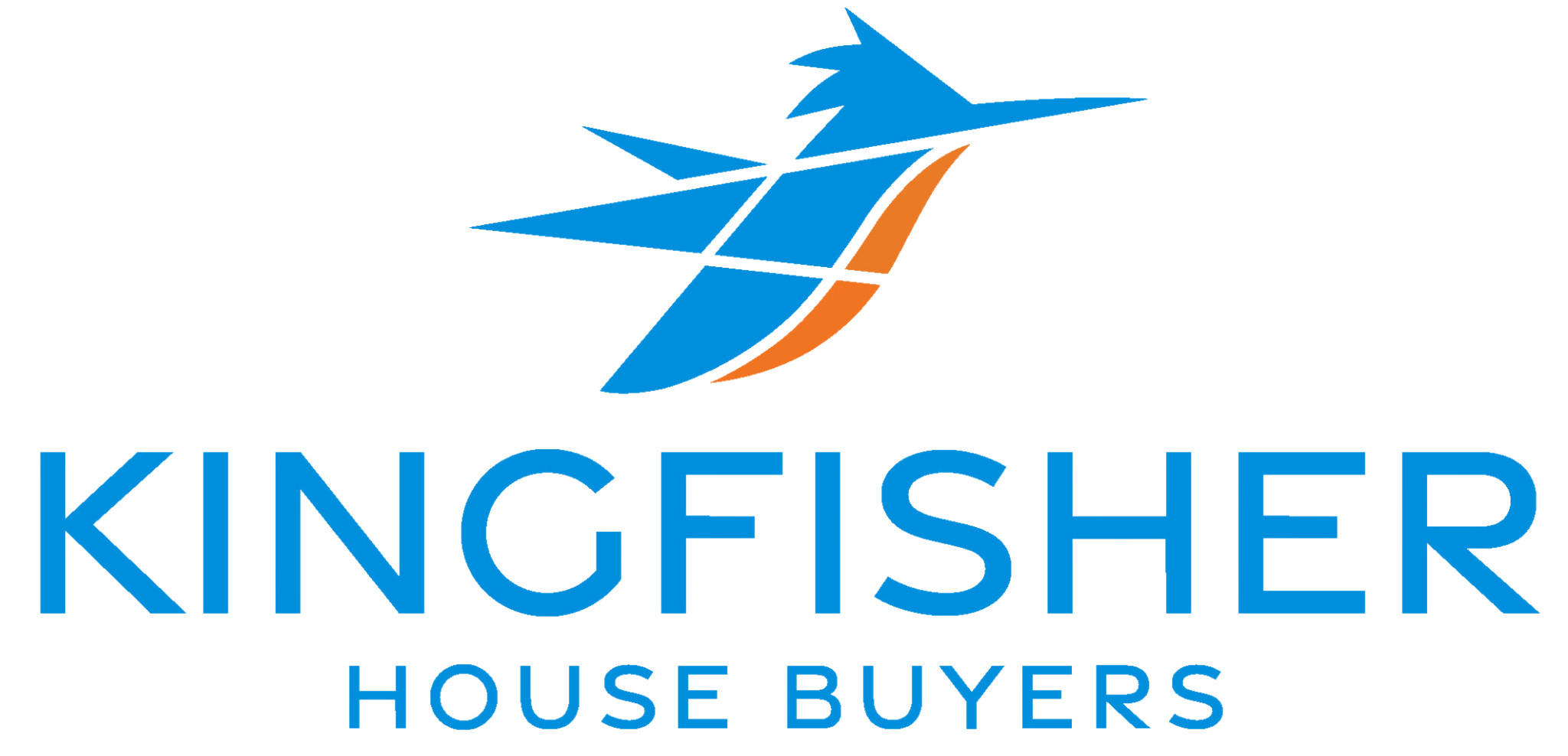
Selling your home by owner in Virginia can be a smart way to save on house buyer commissions, but it’s essential to be prepared, especially regarding the paperwork. From the sales contract to mandatory disclosure forms, proper documents ensure a smooth, legal transaction. This guide will break down the essential paperwork you’ll need to sell your home confidently without a realtor in Virginia.
Comprehensive Guide to Selling a House by Owner in Virginia
If you’re selling your Virginia property without the assistance of a real estate professional, you should know what documentation you need to complete. First, you’ll need the original sales contract, which outlines the transaction conditions between you and the buyer.
Also, Virginia law says that a property disclosure statement must be produced that includes any known defects or deficiencies with the dwelling. If your home was built before 1978, you must tell people about lead-based paint.
You’ll also need to get recent tax returns and utility bills to show possible buyers how much the house will cost each month. Ensure you can easily find your deed because it shows you own the property and will be needed at the closing.
It’s essential to include a filled-out HUD-1 Settlement Statement or Closing Disclosure form, if available. This form should list all the financial transactions during the sale. Lastly, you might want to get a title check done to ensure your property has no liens or other problems that could stop the sale.
If you’re selling your home in Virginia on your own, you can make the process go more smoothly by organizing the necessary documents. Read other FAQ’s here for more helpful tips.
Benefits and Challenges of Selling Without a Realtor in Virginia
People often use “For Sale By Owner,” or FSBO, to sell their Virginia home without a real estate expert. There are pros and cons to this method. One of the main benefits is that you can save a lot of money on real estate marketing costs.

You have complete control over handling the sale yourself, from setting the listing price to bargaining directly with buyers. This personalized method makes terms and conditions more flexible and can speed up the decision-making process.
However, there are problems with selling without a real estate expert in Virginia. Homeowners have to deal with many complicated legal forms and ensure they follow state-specific disclosure rules, like giving a Residential Property Disclosure Statement.
It takes time and skill to market the property well, and sellers can’t use the MLS listings that realtors do, so they have to find other ways to reach possible buyers. Also, making contracts and figuring out market trends takes a lot of work and knowledge of the local real estate market.
Selling by owner can help you make more money because you won’t have to pay commissions. However, you must be strategic and well-prepared to deal with these problems.
How to Prepare Your Virginia Property for Sale by Owner
Pay close attention to the necessary paperwork and legal requirements when getting your Virginia home ready for sale by owner. This will ensure a smooth deal without the help of a real estate professional. First, get all the necessary papers, like the deed, the most recent property tax statements, and any homeowner association documents that could affect the sale.
It’s essential to understand Virginia’s disclosure laws fully. These laws require sellers to fill out a detailed disclosure form with possible buyers, including information about the property’s condition. Doing a title search early on can also help you find any liens or encumbrances that must be taken care of before the sale is finalized.
Getting these things ready ahead of time helps you set a fair price and builds trust with people who might want to buy your home. To stay out of trouble with the law during talks, legal documents like the sales contract should be carefully written or looked over by a real estate lawyer who knows Virginia law.
By keeping these essential papers organized and understanding your local regulations, you can sell your home quickly and maximize your return. Contact Kingfisher House Buyers to get started.
Essential Paperwork for Virginia FSBO Home Sales
If you want to sell your Virginia house on your own, popularly known as “FSBO” (For Sale By Owner), you must be sure you have all the information you need to make the process go smoothly. The deed to the property is the first crucial document. It legally shifts hands from the seller to the buyer.
A detailed sales contract that spells out all the deal details, such as the price and applicable conditions, must be written. Virginia law requires sellers to be honest in real estate deals, so they should also fill out a disclosure form that lists any known problems or flaws with the property.
Getting a copy of a recent home inspection report can give potential buyers even more confidence in the property’s state. It is also essential to do a title check to ensure there aren’t any claims or liens on the property that could make the sale more difficult.
Before the deal is finalized, buyers’ lenders may ask sellers to prove they have homeowners’ insurance. Ensuring all of these documents are correct and fully protect everyone involved makes it easier for a Virginia FSBO transaction to go smoothly.
Legal Requirements for Sale by Owner Transactions in Virginia
If you want to sell your Virginia home by owner, you need to know the legal requirements so that the process goes smoothly. For Sale By Owner (FSBO) deals in Virginia need careful attention to paperwork and following the state’s rules.
Sellers must complete a property disclosure form, detailing material facts about the property’s condition to potential buyers. Additionally, a lead-based paint disclosure is necessary for homes built before 1978.
The purchase agreement must be exhaustive, defining terms such as the sale price, contingencies, and closing details. The acquisition of a title inquiry can prevent future disputes, as it is imperative to have a clear title.
In Virginia, sellers are not required by law to hire an attorney for FSBO transactions, but consulting one can help navigate complex legalities and protect your interests. Properly executing the deed transfer and ensuring all closing documents comply with state regulations are vital steps in finalizing the sale legally and successfully without realtor assistance.
Understanding Disclosure Obligations When Selling Your VA Home
When selling your Virginia property by owner, understanding your disclosure duties is critical to a smooth transaction. Virginia law requires homeowners to provide a Residential Property Disclosure Statement for potential buyers.
This document shows what the seller knows about the property’s state, including any problems or flaws they know about. As Virginia is a “buyer beware” state, sellers aren’t required to tell you everything upfront. However, if you don’t fill out this form correctly, you could get in trouble with the law.
Sellers must also comply with federal regulations by disclosing any presence of lead-based paint if the home was built before 1978. Additionally, it’s important to be forthcoming about homeowners association rules or restrictions that could affect the buyer’s decision-making process.
Familiarity with these disclosure requirements helps maintain transparency and protects you from potential lawsuits and disputes after closing.
Step-by-Step Process of Selling Your Own Home in Virginia
A detailed, step-by-step process that necessitates meticulous attention to essential paperwork is involved in selling a property in Virginia without the assistance of a realtor. Collecting all pertinent documentation, such as the property’s deed, is imperative; it serves as evidence of your ownership.
Prepare a comprehensive property disclosure form mandated by Virginia law to inform potential buyers of any known defects or issues with the home. It’s also crucial to have recent tax records and utility bills on hand to provide to prospective buyers.
Get an accurate title report to ensure that your property has no liens or legal claims that could make the sale more difficult. If your house was built before 1978, you should also fill out and send in a lead-based paint disclosure. This is required by federal law.
Drafting a purchase agreement is another critical step; this contract outlines the terms and conditions of the sale and protects both parties involved. Consider hiring an attorney or using online legal services to ensure all paperwork complies with Virginia real estate law.
Finally, coordinating with a local title company can streamline the closing process by handling escrow accounts and facilitating final document signings. Every piece of paperwork plays a vital role in legally transferring ownership from seller to buyer in Virginia’s real estate market when selling by owner.
Effective Online Platforms for Listing Your FSBO Property in Virginia
If you want to sell your Virginia home without the help of a realtor, you can use successful online platforms to reach potential buyers. This is also known as “FSBO” (For Sale By Owner). People often choose websites like Zillow and ForSaleByOwner.com because they have a lot of users and make it easy to sell your property.
Craigslist can also be an advantageous platform for local exposure, allowing sellers to target specific areas within Virginia. Social media platforms like Facebook Marketplace provide additional opportunities to connect with interested buyers in your network.
When listing your property online, including detailed descriptions and high-quality photos is crucial, as these elements significantly increase consumer interest. By employing these digital tools, you enhance your visibility and simplify the selling process by enabling direct communication between you and potential purchasers, guaranteeing a more personalized transaction experience.
Leveraging Social Media to Enhance Your FSBO Listing’s Visibility
Leveraging social media platforms is a powerful strategy for enhancing the visibility of your For Sale By Owner (FSBO) listing when selling your Virginia home without a realtor. By effectively utilizing platforms such as Facebook, Instagram, and Twitter, you can reach a broader audience and attract potential buyers who might not otherwise see your property.

Start by making interesting posts using high-quality photos and giving detailed descriptions of your home’s features and the best things about the area.
Share your listing with individuals interested in Virginia properties by engaging with local community groups on Facebook. Furthermore, it may be advantageous to implement Instagram Stories or Reels to offer virtual excursions and emphasize the foremost advantages of your residence.
By actively interacting with followers and answering questions quickly, you build trust and increase visibility for your FSBO listing. Consistent engagement helps spark interest and encourages more serious inquiries. Highlight your home’s unique features, maintain a professional online presence, and keep communication open.
These efforts can lead to faster results, and if you’re looking for a more straightforward solution, we buy Virginia homes and homes in nearby cities, helping you skip the hassle and sell directly.
Navigating Contracts and Agreements in a Virginia FSBO Sale
If you want to sell your Virginia house independently, knowing how to read and understand contracts and agreements is essential. If you are selling your home without the help of a real estate professional, you must be very careful when filling out the necessary paperwork to ensure you follow Virginia real estate rules.
The purchase agreement, which includes the sale price, closing date, contingencies, and Virginia law disclosures, is crucial. Home sellers must give buyers a property disclosure statement listing known faults or concerns.
Additionally, it’s essential to have a clear contract that addresses earnest money deposits and specifies what happens if either party fails to meet their obligations. Consulting a real estate attorney can help ensure all agreements are legally binding and protect your interests throughout the transaction.
This attention to detail helps avoid common pitfalls in FSBO sales and facilitates a smoother closing process.
Closing Costs and Fees When Selling a House by Owner in Virginia
If you want to sell your Virginia home by owner, you must know the closing costs and fees. As a “for-sale-by-owner” (FSBO) client, you can avoid paying real estate expert fees, but you will have to pay other costs.
Typical costs include title insurance, which protects the buyer and lender against title defects. Additionally, sellers often pay for deed preparation and transfer taxes required by Virginia law.
You may also encounter prorated property taxes that cover the portion of the year you owned the home. Recording fees for legal documents are another consideration, along with potential settlement fees if you use a closing attorney or escrow company to facilitate the transaction.
Understanding these financial obligations is essential to ensure a smooth closing process when selling your Virginia home without a realtor. Working with a trusted cash for houses company in Beaverdam and other cities in Virginia can help you navigate the process with confidence and ease.
Financial Planning and Tax Implications of Selling a Home in VA
Understanding the financial planning and tax implications of selling your Virginia home by owner is crucial. As a seller, you need to be aware of potential capital gains taxes that could arise from the sale of your property.
If the home has appreciated significantly since you purchased it in Virginia, you might owe federal capital gains tax on the profit after the sale. However, specific exclusions may apply if the residence was your primary home for at least two out of the last five years.
Additionally, you’ll need to gather essential paperwork such as settlement statements and detailed records of any home improvements made over the years to calculate your cost basis and potentially reduce taxable gains accurately. It’s also important to budget for closing costs, which typically include transfer taxes and settlement fees in Virginia.
Consulting with a tax advisor or financial planner can clarify these matters, ensuring compliance with state and federal regulations while maximizing your financial outcome from the sale.
How to Sell a House by Owner: Paperwork?
When selling a house by owner in Virginia, it’s crucial to understand the essential paperwork required to facilitate a smooth transaction. First and foremost, you’ll need a comprehensive For Sale By Owner (FSBO) Agreement outlining the sale terms.
Ensure you have an explicit property disclosure statement to inform potential buyers of any known issues with the home, as this is mandated by Virginia law. Additionally, prepare a detailed purchase agreement, which serves as the contract between you and the buyer, specifying details like price, closing date, and contingencies.
A title report is also necessary to confirm ownership and reveal any liens on the property. Don’t overlook the importance of obtaining an accurate property valuation through an appraisal or market analysis to set a fair price.
Finally, coordinate with a title company or real estate attorney for assistance with closing documents to ensure compliance with state regulations. Properly managing these critical documents will help facilitate a successful FSBO transaction in Virginia without needing a realtor’s involvement.
Do I Need an Attorney to Sell My House in Virginia?
When selling your Virginia home by owner without a realtor, you may wonder, “Do I need an attorney?” While Virginia law does not require hiring an attorney to sell your house, enlisting one can be highly beneficial. An experienced real estate attorney can guide you through the essential paperwork for a successful transaction.
They can assist with drafting and reviewing the purchase agreement, ensuring compliance with Virginia’s legal requirements. Additionally, they can help navigate complex issues like title searches, disclosure forms, and closing documents.
By having an attorney on your side, you minimize potential legal pitfalls and ensure that all paperwork is completed accurately, protecting your interests throughout the home-selling process in Virginia.
What Are the Three Most Important Documents in Any Sale of Property?
When selling your Virginia home by owner without a realtor, it’s crucial to understand the essential paperwork involved in the property transaction. The three most important documents in any real estate sale are the purchase agreement, the property deed, and the seller’s disclosure statement.

The purchase agreement is a legally binding contract between you and the buyer that outlines all terms of the sale, including price, closing date, and contingencies. It’s vital to ensure this document is comprehensive and precise to avoid future disputes.
Next is the property deed, which legally transfers ownership of your home from you to the buyer; ensuring this document is correctly completed and recorded with local authorities is paramount for a smooth transfer of title. Lastly, Virginia law requires sellers to provide a seller’s disclosure statement detailing known defects or issues with the property.
This document informs buyers and protects sellers from future liability claims related to undisclosed problems. Understanding these critical documents can streamline your home-selling process and mitigate potential legal challenges when selling without a realtor in Virginia.
Need to sell your home? Whether you want to sell fast, skip expensive repairs, or avoid the hassle, give us a call at (540) 755-4099. We’ll make you a fair cash offer, take care of the details, and ensure a smooth, stress-free process.
| STATE OF VIRGINIA | REAL ESTATE AGENTS | MULTIPLE LISTING SERVICE | ESTATE AGENTS | LEGAL COUNSEL | ARTIFICIAL LIGHTING |
| ARTIFICIAL LIGHT | APPRAISALS | HOA | HOMEOWNERS ASSOCIATION (HOA) | CASH | HOUZEO |
| THE NATIONAL ASSOCIATION OF REALTORS | NAR | MORTGAGE LENDER | LENDING | LOANS | INUNDATION |
| FLOOD | CREDIT | FLAT FEE | BATHROOMS | KITCHENS | |
| OPEN KITCHEN | NATURAL LIGHTING | CHECKLIST | WARRANTIES | U.S. | REDFIN |
| RECEIPTS | PHOTOGRAPHY | PHOTOGRAPHER | PATIO | HOME INSPECTOR | DOLLAR |
| CONDO | BULBS | BLOG | MASTER BEDROOM | BEDROOM | BANKING |
| BANK | FLAT FEE MLS | VIRGINIA FLAT FEE | ON THE MLS | A HOUSE IN | HOUSE WITHOUT A |
| BY OWNER FSBO | REAL ESTATE AGENTS | YOUR HOUSE WITHOUT | MULTIPLE LISTING SERVICE | TO USE A | THE REAL ESTATE |
| NUMBER OF BEDROOMS | THE PROPERTY IS | A HOUSE WITHOUT | A FLAT FEE | SELLING YOUR HOUSE | ESTATE ATTORNEY TO |
| COMPARATIVE MARKET ANALYSIS | MARKET ANALYSIS CMA | A COMPARATIVE MARKET | LISTING SERVICE MLS | VIRGINIA FLAT FEE MLS | OF SELLING A HOUSE |
| A HOUSE IN VIRGINIA | SALE BY OWNER FSBO | HOUSE WITHOUT A REALTOR | SELL A HOUSE IN | HIRE A REAL ESTATE | YOUR HOUSE WITHOUT A |
| SELL YOUR HOUSE WITHOUT | OF BEDROOMS AND BATHROOMS | NUMBER OF BEDROOMS AND | SELLING A HOUSE WITHOUT | A HOUSE WITHOUT A | A FLAT FEE MLS |
| FOR SELLING A HOUSE | REAL ESTATE ATTORNEY TO | THE MULTIPLE LISTING SERVICE | SELLING A HOUSE IN | MULTIPLE LISTING SERVICE MLS | COMPARATIVE MARKET ANALYSIS CMA |
| A COMPARATIVE MARKET ANALYSIS | NATIONAL ASSOCIATION OF REALTORS | OF THE SALE PRICE |
Helpful Virginia Blog Articles
- Taxes On Selling Your Home In Virginia
- Selling An Inherited House In Virginia
- House Sale Contingencies In Virginia
- Attorney Fees For House Closings In Virginia
- Selling A Home With Code Violations in Virginia
- Selling Your Virginia Home With Unpermitted Work
- Selling a Home With Foundation Problems in Virginia
- Understanding Virginia Inheritance Laws
- Sell Your House Below Appraised Value In Virginia
- Paperwork For Selling Your Home By Owner in Virginia
- Selling Your Virginia Home With Tenants
- Virginia’s Rules And Risks For Leaving Your House Vacant

